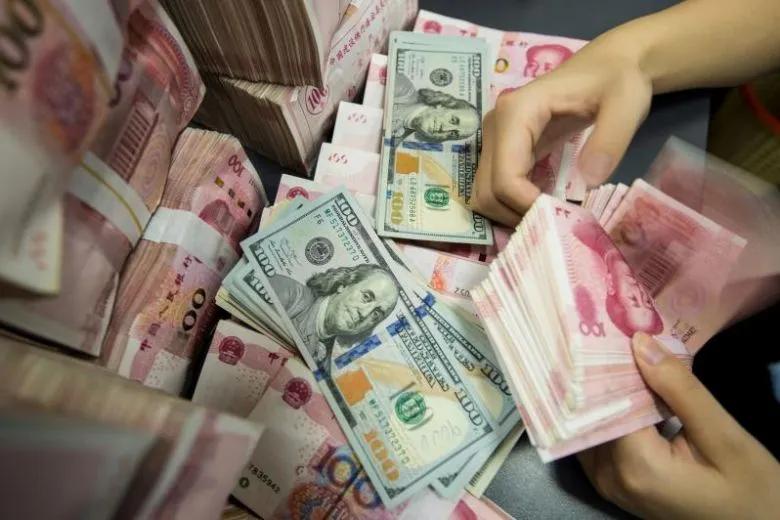
Tewoo Group Corp announced results of its unprecedented debt restructuring, which saw a majority of its investors accepting heavy losses. This is expected to reshape investors' perceptions about government-owned borrowers whose identity has for years offered a relatively strong sense of security.
It's also seen as offering a road map for resolving similar debt crises in the future.
The one-time Fortune Global 500 company from the northern port city of Tianjin said its dollar bond investors representing 57 per cent of the the total US$1.25 billion (S$1.7 billion), have accepted repayment with a discount as deep as 63 per cent. Bondholders representing 22.6 per cent of these bonds voted to exchange their debt for new bonds with sharply lower coupons to be issued by Tewoo's offshore debt manager, a state asset manager from Tianjin.
"This is one form of default based on our definition," said Ivan Chung, a Hong Kong-based analyst at Moody's Investors Service, noting that the debt revamp has resulted in losses for investors.
LANDMARK DEAL
The debt restructuring plan, first of its kind for a Chinese state-run enterprise in the dollar bond market, came ahead of US$300 million dollar bond maturity on Dec 16, one of the four notes covered by Tewoo's debt restructuring plan. Tianjin State-owned Capital Investment and Management, its offshore debt manager, said in an investor call late last month that Tewoo is very likely to default on this paper.
For investors who turned down the offers, their dollar bonds will be grouped into a comprehensive debt plan involving Tewoo's onshore debt, according to Tianjin State-owned Capital.
Tewoo said settlement of the debt restructuring offers are expected to be on or about Dec 17.
Tewoo's failure in the dollar bond market, the biggest for a Chinese SOE since the collapse of Guangdong International Trust and Investment Corp in 1998, is a sign that the worst economic slowdown in three decades is limiting Beijing's capacity to bail out its weaker state firms. As a result, the authorities appear increasingly willing to use a more market-oriented approach to clean up the mess.
SETTING PRECEDENT
"Given there haven't been many offshore bond distress cases by Chinese local government owned entities in recent years, the market seems to be taking the current case as a data-point in assessing the level of potential discounts the market can expect in such distress cases," said Judy Kwok-Cheung, director of fixed-income research at Bank of Singapore.
"The results have shown that investors find it difficult to price extraordinary government support for local government owned entities. Therefore they prefer cash over further potential credit risk for another extended period of time despite the deep discount," said Kwok-Cheung.
Tewoo is owned by the Tianjin government and operates in a number of industries including infrastructure, logistics, mining, autos and ports, according to its website. It also has footprints in countries including the US, Germany, Japan and Singapore.
The trader ranked 132 in 2018's Fortune Global 500 list, higher than many other conglomerates including service carrier China Telecommunications Corp and financial titan Citic Group Corp. It had an annual revenue of US$66.6 billion, profits of about US$122 million, assets worth US$38.3 billion, and more than 17,000 employees as of 2017, according to Fortune's website.




















